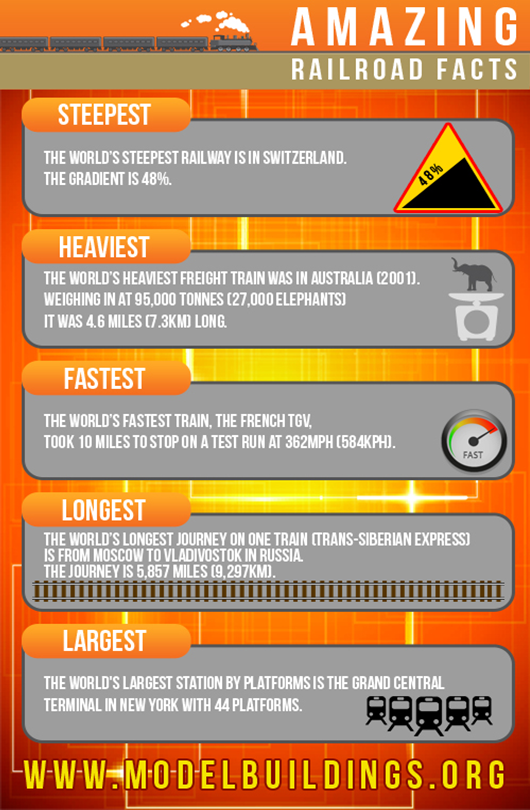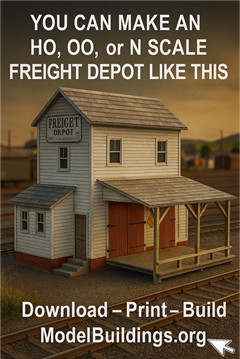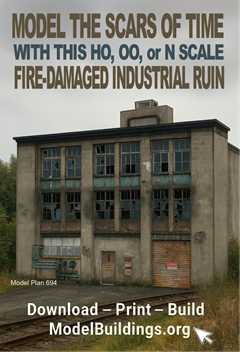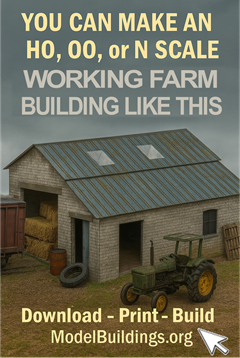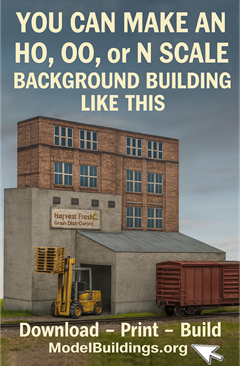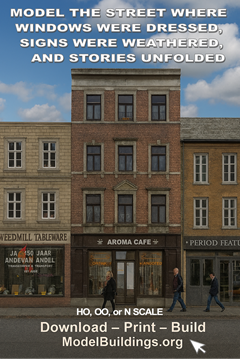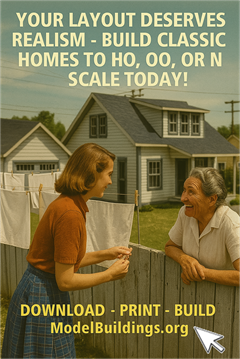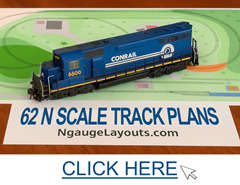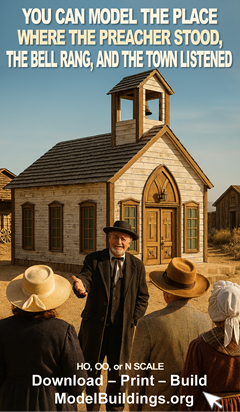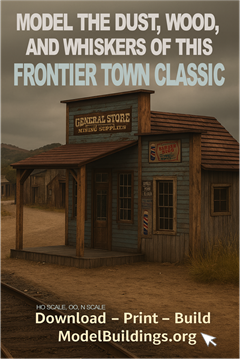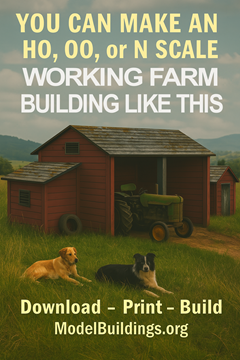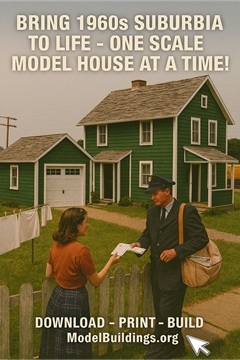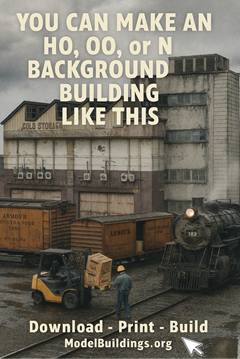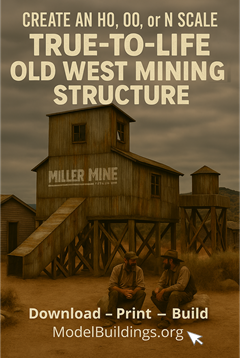Everything on model trains, model railroads, model railways, locomotives, model train layouts, scenery, wiring, DCC and more. Enjoy the world's best hobby... model railroading!
Wiring Turnouts and Control Panel
Ray asks:
“I want to switch my HO scale turnouts with a single switch to also supply power the track and illuminate an LED on the control panel. I am using PECO motors on PECO track. I think that a continuous supply to PECO motors causes them to burn out. I have a number of double pole double throw switches but I am unsure how to wire it to prevent motor burnout. Any thoughts would be appreciated.”
Fitting New Section Of Track Into Gap
Ryan asks:
“We relocated house and moved my layout without any major damage except one section of Atlas Code 83 track. I have a new section to insert, but with joiners, it is longer than the gap it needs to fit. How do I cut the track and ties etc?”
Best Road Switcher Engines?
Malcolm would like recommendations:
“In your opinion what are the best types of road switchers?”
Add your thoughts below.
Coloring Woodland Scenics Hydrocal
Ben asks:
“I had thought of coloring Hydrocal instead of painting it. Is this possible and worth doing?”
Add your comments below.
Hiding Joins Between Track Modules
Neil has started work on his HO railroad and posted his first question:
“I’ve built the first module on my planned 2ft x 12ft layout and have suddenly realized the problem of hiding the joins between each module. I hadn’t really given it much thought until now. I doubt I will need to move my layout much, but at some stage, I will most likely come up against the inevitable.
I’m interested in what others have done to disguise the joins between modules. Is it best to avoid a straight line join for separations between the modules… perhaps a bend, or jigsaw type join to make the lines between my modules less obvious? I know that would make the framework more complex, or should I just position scenery to disguise the joins? If so, any ideas? Also, any thoughts of correct procedure for accessories, track, signals and controls between modules? Much appreciate in advance.”
Steep Inclines? Use This FREE Grade Calculator Tool
To use this FREE tool, simply click on the Railroad Resources tab in the top NAV BAR on the website. Then click on the “Get your FREE calculators here.” link. That will take you to several free calculators you can use including the FREE grade calculator. https://www.modelbuildings.org
You are welcome to share this link with your friends by email or post the link on your website or Facebook page.
1st Radius Curves
Peter models OO and asks:
“Does anyone have a list of locomotives that will negotiate a 1st radius curve, either Hornby or Bachmann? I know all large steam locos will not work but are there any diesel or electric locos that will work. Thanks in advance for any help.”
DCC Crossovers and Return Loops
Christopher asks:
“I have modified my Peco Electrofrog turnouts by cutting the factory connection and soldering one side of the main to one side of turnout and added an AR1 for the return loop, for the crossover I have a dual frog juicer. Both of these still short out. What did I do wrong? How can I solve these problems?”
Schematic of a Kato SD40-2?
Gary models N scale and asks:
“Does anyone know where I can locate a schematic of a Kato SD40-2 early model?”
Too Many Locos To Convert To DCC?
Allan Wright shares these Thoughts:
“A friend across the other side of the country mentioned in passing that he would be sticking with DC because he had so many locos it would be impossible to convert his entire stable to run on DCC. It made me wonder how many others are in the same predicament because, in reality, you don’t need to convert every loco. Most people don’t operate every loco on their layout. If you are like me, you will likely operate a handful of personal favorites… the ones you can rely on. If you were to operate all your locos, you could allow for a line on your layout to be isolated from the DCC circuitry and controlled by DC. For some switches, you could share the line between DCC and DC. Just a few thoughts I wanted to share.”
Model Railroading – Then and Now
This short film follows the timeline of model railroading through the decades.
The old BBC ‘newsreel style’ voice will bring back memories for many. The footage is with courtesy of the US film Archives.
Choosing The Right Decoder
Abdullah asks:
“I have a LIFE-LIKE Train GP-38, Santa Fe 3500, Power Locomotive model # 8294. I would like to know the right decoder to fit this engine. Thank you.”
Model Power EMD – E7 Engine Schematics
Jim models in HO and posted this:
“I have an old ( however, never really used – sat on a shelf for 32 years ) Model Power EMD – E7 engine. where can one find schematics or parts teardown for one of these babies? I would like to get this one running again. It has a power connection problem.”
Which Lubricants to Use on Locomotives?
Chris T asks several questions:
“My mind has been working overtime so I jotted down a few questions re lubes. Apart from which oil(s) are the best to use, can I stick with just plastic compatible oil for everything? I have a new bottle of 3in1 oil which the bottle states can be used on plastic and metal. Is this stuff good enough? I have some LaBelle oil that has been in the shed for probably 20 years. Should I use this or is it too old? It looks ok.
Am I right in thinking the wheels need light oil and open gears will need something heavier? I picked up a couple of old locos still in their boxes. I don’t even think they have ever been run. Will they need lubing before I put them on the track?
A million questions I know and I haven’t even asked about dismantling locos, getting the shells off, and removing screws to get access. I told you my mind was racing. Ha! Ha! I was going to just dive in and do things but as usual, I overthink things and thought it better to ask first.”
Mystery Over 40 ft Grain Load Door Boxcars
Shane posted this question:
“I purchased a whole lot of old Athearn Blue Box kits off eBay. Got a bargain so can’t complain. Included were some 40 ft grain load door boxcars with the door molded on the body. There are hatches near the top of the side doors with no markings. I would like to know when cars of this type where most common – the decade? The railroads where they operated? If I know that I might be able to locate some decal sets?”
Wiring to Power Busses and Soldering Track
Damien posted this question:
“I am planning to solder my track in sections and am aware how a drop in voltage can cause issues. What size wire should I solder to the rails going back to the area power busses? I presume I should run the maximum wire size my DCC controller will allow to my power busses? Advice on wire size and methods would be good.”
Post your question using one of the ASK A QUESTION links under any post on this blog.
Lionel 450 Bridge Wiring
Daniel asks:
“I’m sure this has been covered before, but probably missed it. Can someone tutor me in wiring the 450 signal bridge using an insulated track section. Thanks for any guidance.”

